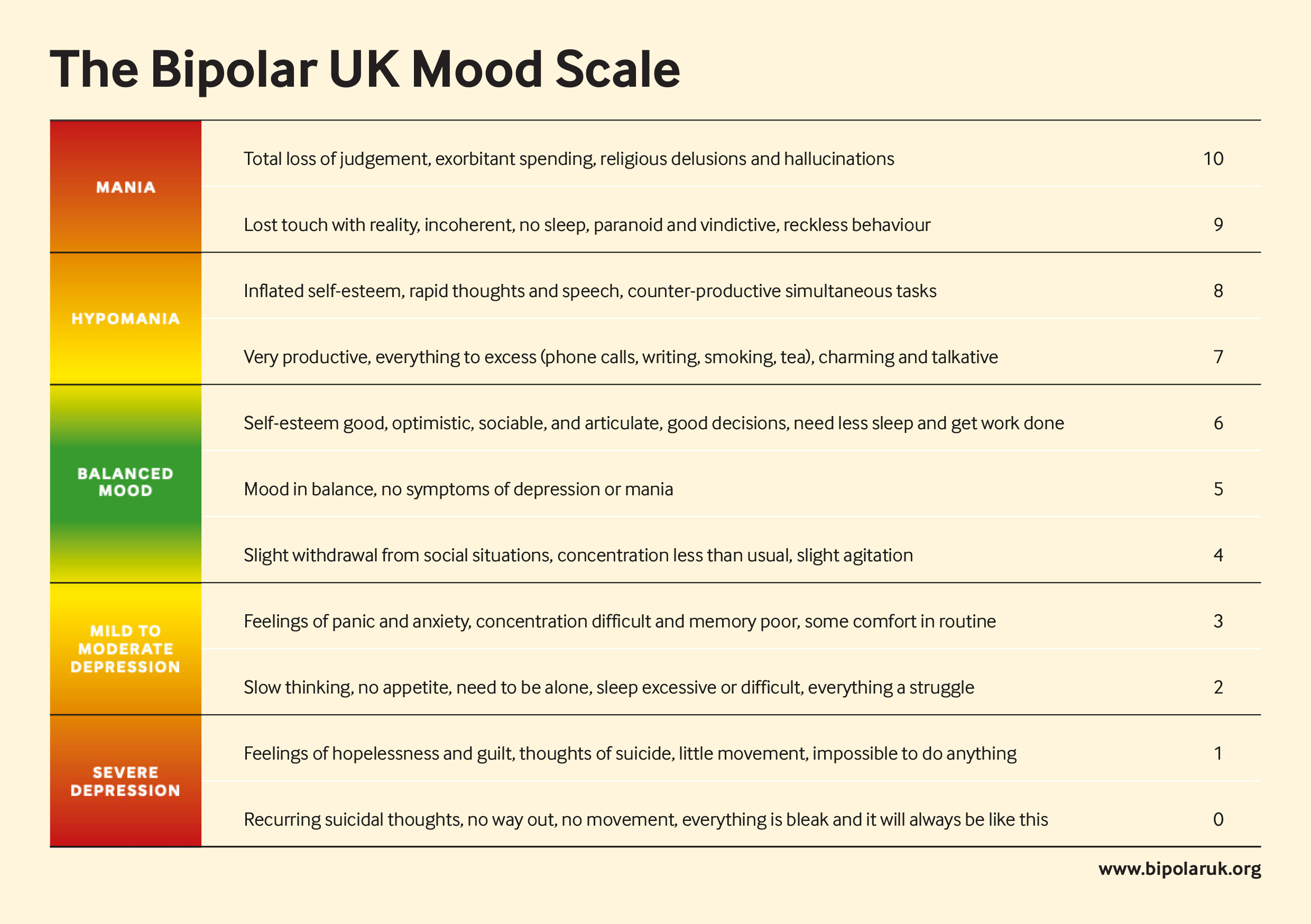This content is associated with The Open University’s Health and Wellbeing qualifications.
Around 2% of people - or 1 in 50 people - have bipolar, which was formerly known as manic depression. It is a severe mental illness characterised by extreme mood swings and changes in energy levels. Someone with bipolar can have long or short periods of stability, but can then move into a deep depression or into a high, when they might experience hypomania, mania or psychosis.
Understanding bipolarTo help explain the condition, Bipolar UK uses a Mood Scale from 0 to 10, with 0 being low and 10 being high. For most people without bipolar, on their worst day they will experience a ‘feeling down’ low of 4, and on their best day a ‘feeling happy’ high of 6.
For people living with bipolar, their range of emotions is much wider. They can experience a 0, which is deep depression with recurring suicidal thoughts. At the opposite end of the spectrum, they can experience a 10, which is an extreme manic high where people experience psychosis, paranoia and/or hallucinations, completely losing touch with reality.
What people often don’t know about bipolar is that many people with the condition live well - having families, a fulfilling work life and enjoying weeks, months or sometimes years of stable mood. As long as someone gets the right treatment and support, it really is possible to live well with bipolar.
 Bipolar uk mood scale.
Bipolar uk mood scale.
Supporting people with bipolar
While much of the work we do at Bipolar UK is to encourage wider understanding of bipolar to help banish the stigma, peer support has been at the heart of what we’ve been doing for 40 years. Today we run online and in-person peer support groups for people affected by bipolar, a moderated eCommunity with over 11,000 active users and one-to-one peer support via telephone and email.
Find out more- Listen to an inspiring line-up of speakers at our online conference on World Bipolar Day, Thursday 30 March 2023, 6-9pm. Sign up for a free ticket here
- Understand bipolar better Take our free eLearning course here
- Wondering if you - or someone you know - might have bipolar? Read info about getting a diagnosis here
- Need support? Find out about our peer support services here






Rate and Review
Rate this article
Review this article
Log into OpenLearn to leave reviews and join in the conversation.
Article reviews